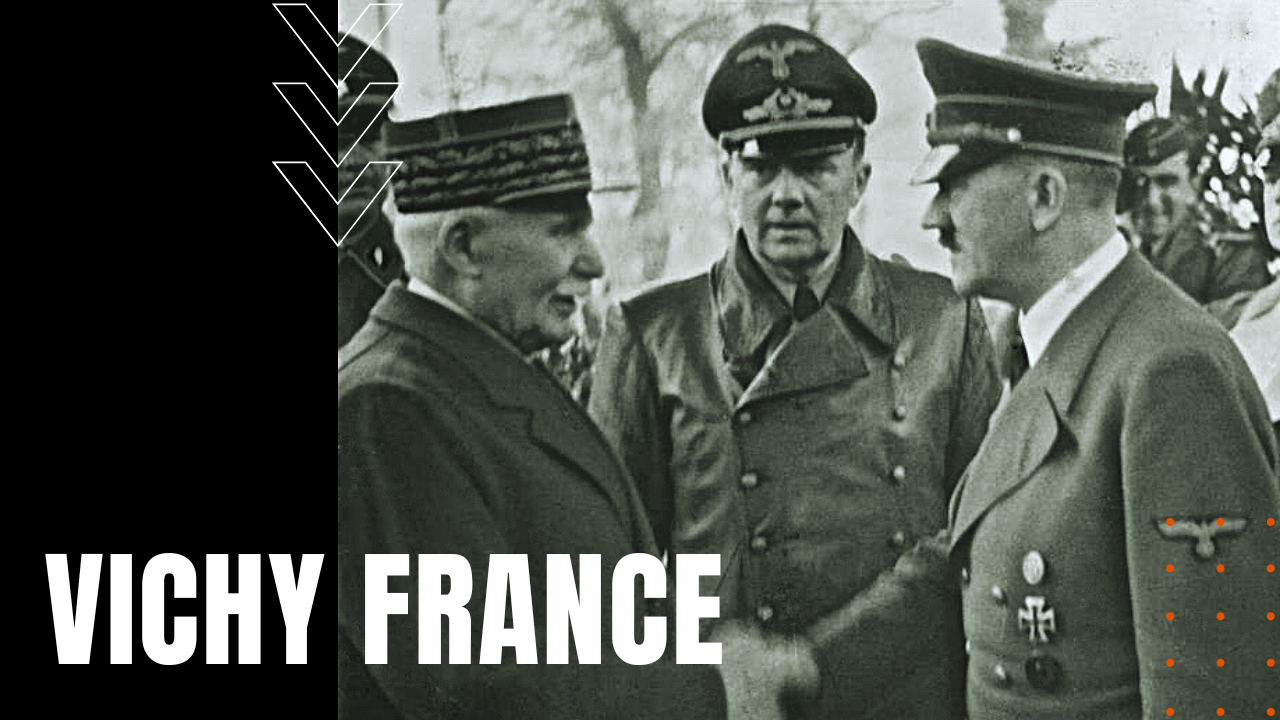Vichy France

Following Hitler’s Blitzkrieg invasion of Poland on September 1st, 1939, two days later, France declared war on Germany, setting off an eight-month waiting period known as the “Phony War.” That all ended on May the 10th, 1940, when Nazi stormtroopers began their six-week, crushing sweep across the north of France. While Prime Minister Paul Renaud argued that France should continue the fight against Nazi aggression—perhaps by regrouping in their North African colonies—most shellshocked leaders felt differently, due to the nation’s swift defeat to the Nazis. As a result, on June 22nd, 1940, after losing some 100,000 soldiers in defense of the nation, France signed an armistice with Germany, while on July 9th, parliament voted overwhelmingly to abandon the Third Republic in support of Philippe Pétain.
Mass Surrender
The armistice led to the German occupation of northern France, as well as the surrender of some two million French soldiers, while Pétain governed free southern France from the spa city of Vichy. The Third Republic’s slogan of liberty equality and fraternity was replaced by Pétain’s conservative-minded slogan, work, family and fatherland, and while support for Pétain’s Vichy government was at first widespread amongst French citizens and the United States—the later sending William Leahy as ambassador to the Vichy government—as the war bled on and the French resistance movement expanded, Pétain’s authoritarian government muzzled growing decent by imprisoning critics and tapping phone lines.
de Gaulle in Exile
Meanwhile, from his exile in London, General Charles de Gaulle opposed the Vichy government with his Free France movement. As Germany began to exert more and more influence over the south of France, in the face of rising antisemitism ever since the Dreyfus Affair of the 1890s, French leaders eager to cast blame for the nation’s swift defeat against the Nazis, pointed the finger at Jews, Communists and socialists, and since the Jews were the most easily identifiable of the three, the Vichy government began the removal of Jews from French soil, including a 1942 roundup in July known as Vel d’Hiv, which saw the largest single month deportation of Jews to Nazi concentration camps from France—some 13,000 strong.
Guilty of Holocaust Deaths
By the time of French liberation following the D-day invasions of June 6th, 1944, the Vichy regime had helped to deport 75,721 Jewish citizens and refugees to Nazi death camps. After the war, Pétain was tried and sentenced to death for treason, yet due to his advanced age and heroic service during WW1, his sentence was commuted to life in prison, making Vichy France, a lingering stain on the long history of a nation.
